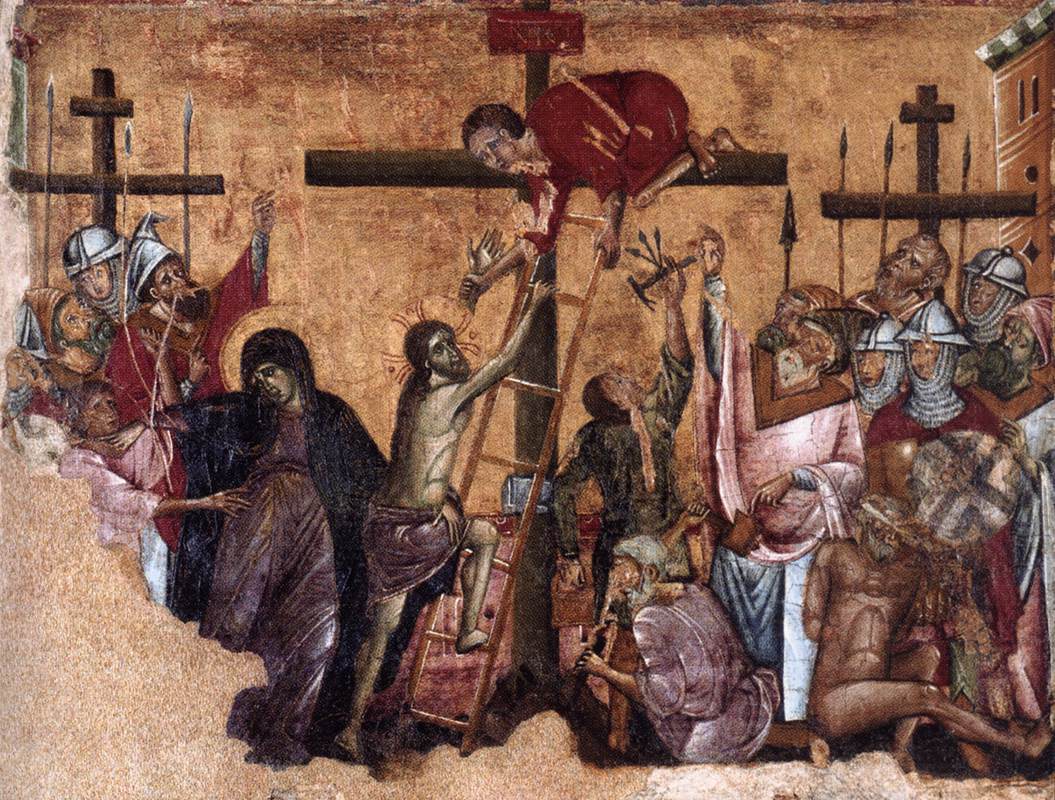Description
The painting Christ Crucified by Guido Da Siena is a work of art that stands out for its artistic style and composition. The artist uses a detailed and realistic painting technique, which gives the image a three-dimensional appearance and a sense of depth.
The composition of the painting is impressive, with the figure of Christ at the center of the image, surrounded by a mountainous landscape and a dramatic sky. The figure of Christ is depicted in great detail, with his lean and muscular body, and his head tilted to one side in a gesture of suffering.
The color of the paint is another interesting aspect of the work. Guido Da Siena uses a palette of dark and muted colors, which reflect the sadness and pain of the crucifixion. However, there are some details in the painting that are brighter, such as the red robe of Christ and the blue cloak of the Virgin Mary.
The history of the painting is also fascinating. It is believed to have been created in the 13th century in the Italian city of Siena, and is one of the earliest known representations of the crucifixion of Christ. The painting was originally created as an object of religious devotion, and was used in church ceremonies and processions.
There are some little-known aspects of painting that are also interesting. For example, Guido Da Siena is believed to have been one of the first Italian artists to use the perspective technique in his artwork. Furthermore, the painting has been the subject of various studies and analyses, which have revealed surprising details about its composition and painting technique.
In summary, the painting Christ Crucified by Guido Da Siena is an impressive work of art that stands out for its artistic style, composition, color, and its history. It is a work that remains relevant and moving today, and one that continues to inspire artists and viewers alike.

